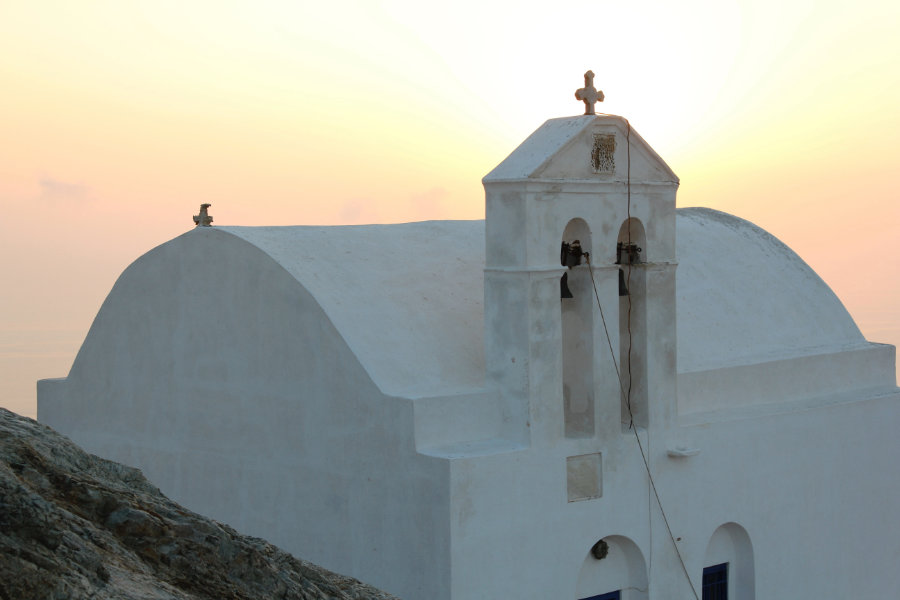Καλο Πασχα - Happy Easter
Written by Rosy
- Published in BLOG

Photo by David T on Unsplash
Over 260 million orthodox christians are celebrating Easter, the so called “pascha” or resurrection sunday. In Greece this is the most important religious feast of the year and in 2020 celebrations take place 2 weeks around Sunday, the 19th of April. Although in this special times during a global lock down easter might look a little different this year, it also highlights the rebirth of a new era even more.
Winter is over and many people almost managed 40 days of lent. In our last blogpost about fasting, we elaborated on why, what and how people are fasting. Did you ? Well, no matter if it was meat, alcohol, sugar, wheat or sweets that you skipped for a few weeks, the period of deprivation already had an end for you if you celebrated easter last week or it will come to an end on sunday this week.
From fasting to rebirth
This year the feast started on the so called, big monday, 13th of April, where the last dinner with Jesus christs apostles took place. At this time schools and universities usually close for two weeks and families and friends take their time to celebrate. Due to the orthodox bible on the following Wednesday Jesus Christ was hanged on the cross and on Thursday he died. On this day you typically hear sorrowful bell chimes all over Greece. They are calling to the Greek Easter Epitaph. Inside every church you will find a beautifully decorated bier, that people can access throughout the whole friday. Believers of the orthodox community come to visit the Easter Epitaph and kiss the icon of Jesus Christ that is often wrapped in linen. This is followed by procession in the evening when the decorated coffin is carried around through the villages accompanied by prayers of a priest and the religious community.
On Saturday everyone is preparing for the holy midnight mess. Whoever is able joins the religious traditions and carries a so called labatah, a candle that is especially crafted for this important day, to the church. At midnight all candles are extinguished and when the priest speaks the “Christos Anesti" - christ is risen - he passes on the flame and soon all candles are litten again. This symbolises the rebirth of Jesus christ.
Usually, Easter Monday is a day to relax after all the celebrations and things are being taken slowly - σιγά σιγά - as the greeks say.
Typical food around Easter
Food around Easter in Greece does not differ much from other European countries on one hand when thinking about typical dishes like lamb or easter eggs on the other hand there are dishes you might not have heard of before.
On the so called Holy or Great Thursday orthodox christians dye eggs red. This has been a symbol for the blood of Jesus and renewal of life. Additionally, people often bake Tsoureki - a sweet easter bread - that encloses the red dyed eggs.
On Saturday the so called traditional Magiritsa soup is made from the lambs intestines, that is traditionally served with red wine. The so called Kokoretsi is another typical dish that is served around easter. It consists of lamb or goat intestines wrapped around an offal.
After the procession that starts saturday late evening and ends with the Christos Anesti shortly after midnight on Sunday, it is time to celebrate the end of the fasting period and enjoy the prepared meals to the fullest. Family´s come together to celebrate the rebirth of Jesus Christ. Also the red easter eggs that were prepared earlier are served now.
Special easter traditions on greek islands
There are some traditions in specific areas in Greece that go beyond a quiet celebration of the resurrection of Christ.
Every year people at Chios island, also known as the island where the famous raisin Mastiha grows, have a special way of celebrating. They craft the so called easter rockets by themselves at home in order to welcome the new period of the year by having an enormous firework all over the island. Sounds dangerous ? Yes, it definitely is. It is not a coincidence that one or the other person misses a finger or two ;).
In Korfu people follow the special tradition of throwing heavy pots filled with water from their balcony. You ask yourself now - why on earth would you do that ? Well, smashing the pots symbolises the earthquake that was followed by Christs resurrection. Thousands of people follow this special tradition, that happens all around the island.
Whether you already celebrated Easter, you never do or the feast of resurrection happens in the next few days for you, we wish you beautiful days. Stay healthy !
